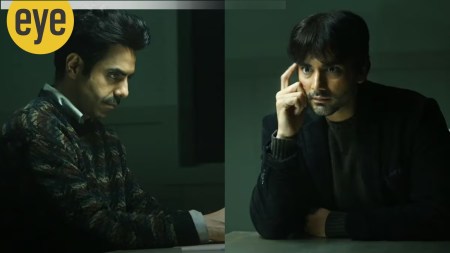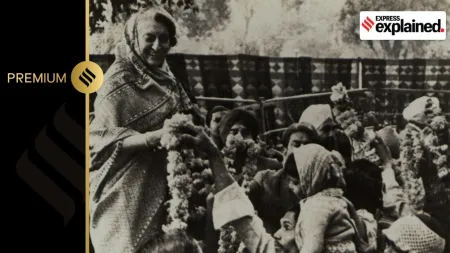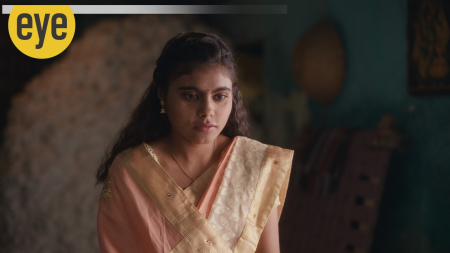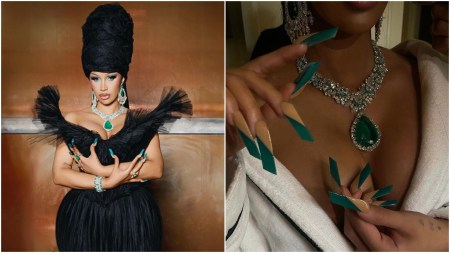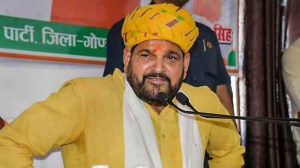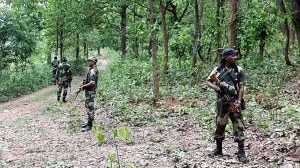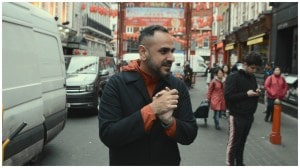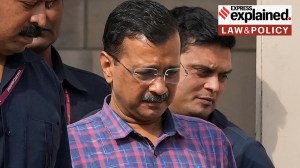- India
- International
Explained: India’s One-China stand and relations with Taiwan
India does not have formal diplomatic ties with Taiwan yet, as it follows the One-China policy. However, during then Chinese premier Wen Jiabao’s visit to India in December 2010, India did not mention support for the One-China policy in the joint communique.
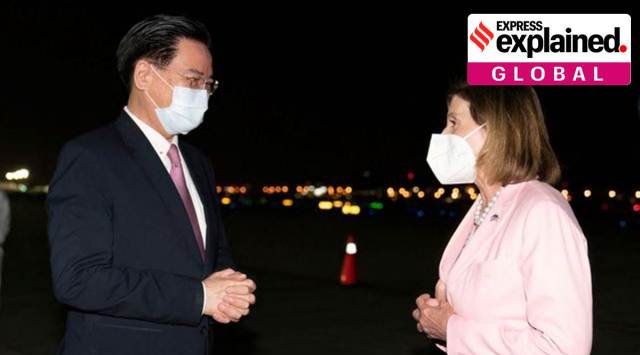 Taiwan Foreign Minister Joseph Wu welcomes Nancy Pelosi at Taipei Songshan Airport in Taiwan on Tuesday. (Taiwan Ministry of Foreign Affairs via Reuters)
Taiwan Foreign Minister Joseph Wu welcomes Nancy Pelosi at Taipei Songshan Airport in Taiwan on Tuesday. (Taiwan Ministry of Foreign Affairs via Reuters)As US House Speaker Nancy Pelosi arrived in Taiwan on Tuesday night, upsetting China, India was keenly watching the developments, although it has not yet commented on it.
India does not have formal diplomatic ties with Taiwan yet, as it follows the One-China policy. However, during then Chinese premier Wen Jiabao’s visit to India in December 2010, India did not mention support for the One-China policy in the joint communique.
In 2014, when Prime Minister Narendra Modi came to power, he invited Taiwan’s Ambassador Chung-Kwang Tien, along with Lobsang Sangay, president of the Central Tibetan Administration to his swearing-in.
While following the One-China policy, India has an office in Taipei for diplomatic functions — India-Taipei Association (ITA) is headed by a senior diplomat. Taiwan has the Taipei Economic and Cultural Center (TECC) in New Delhi. Both were established in 1995.
Their ties focus on commerce, culture and education. Now in their third decade, these have been deliberately kept low-profile, owing to China’s sensitivities. For example, parliamentary delegation visits and legislature-level dialogues have stopped since 2017, around the time the India-China border standoff happened in Doklam.

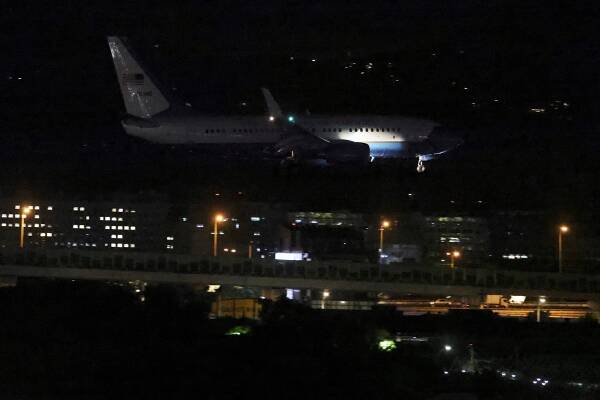 A plane carrying US House of Representatives Speaker Nancy Pelosi and other members of the US delegation arrives in Taipei, Taiwan, August 2, 2022. (Reuters Photo)
A plane carrying US House of Representatives Speaker Nancy Pelosi and other members of the US delegation arrives in Taipei, Taiwan, August 2, 2022. (Reuters Photo)
But, in recent years, India has tried to play up its relationship with Taiwan, as its ties with China have been strained. In 2020, after the Galwan clashes, New Delhi handpicked diplomat Gourangalal Das — then joint secretary (Americas) in the Ministry of External Affairs — to become its envoy in Taipei.
On May 20 that year, the BJP asked two of its MPs, Meenakshi Lekhi and Rahul Kaswan, to attend the swearing-in ceremony of Taiwan President Tsai Ing-wen through virtual mode.
Lee Teng-Hui
In August 2020, condoling the death of former Taiwan President Lee Teng-hui, India described him as “Mr Democracy” — again perceived as a message to Beijing. New Delhi’s mission is otherwise extremely careful not to issue politically-loaded statements on Taiwan.
It was during Lee’s rule that India had established ITA in 1995. In 1996, Lee was elected for a second term in Taiwan’s first direct presidential election. As President, he got rid of laws that came in the way of democratic development, overhauled the legislature, held free legislative elections, and allowed Taiwanese people to vote for their President for the first time.
Taiwan’s current President Tsai Ing-wen is considered Lee’s protege.
On Tuesday, as Pelosi landed in Taipei, the Chinese embassy in Delhi issued three statements, all of them reiterating that “this is a serious violation of the One-China principle”.
The new push
In May this year, Sana Hashmi, a visiting fellow at the Taiwan-Asia Exchange Foundation in Taipei, wrote in a paper for the Institute of South Asian Studies at the National University of Singapore, “Any significant development in India-Taiwan relations runs the risk of meeting with a likely stern reaction from Beijing. This explains India’s steady, albeit slow, outreach to Taiwan. Given that India-China relations are not likely to witness a return to normalcy in the near future, India should consider adopting a bold, comprehensive and long-term approach to engage Taiwan.”
She added: “While there are compelling reasons for India and Taiwan to look towards each other, much of the relationship has been episodic, characterised by momentary highs. The relations have been suffering from divergent approaches, unrealistic expectations, and the resultant missed opportunities.”
The Tsai government is keen on expanding areas of cooperation with India as it is one of the priority countries for Taiwan’s New Southbound Policy. So far, it’s been largely an economic and people-to-people relationship. Now, amid the tension with China, New Delhi is paying attention to the need to advance India-Taiwan ties.
More Explained
EXPRESS OPINION
May 10: Latest News
- 01
- 02
- 03
- 04
- 05


